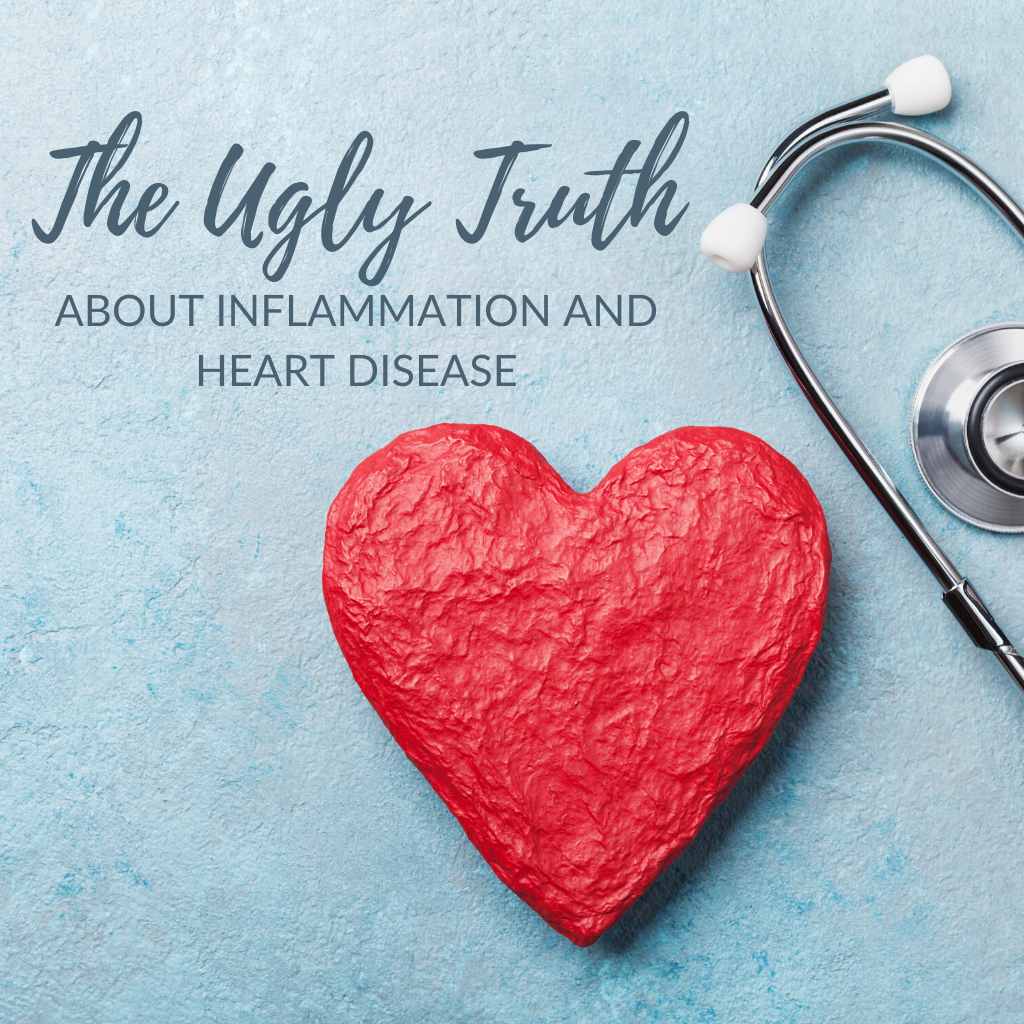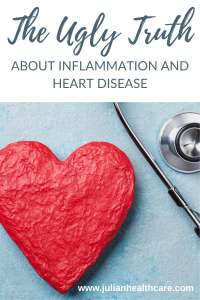Heart disease remains the number one killer of both men and women in our country. By now, nearly everyone knows some of the common risk factors for heart attacks. I would like to discuss some of the less-known risk factors and what you can do to decrease your risk of becoming a statistic to America’s number one killer! Listed below are some of those less-known risk factors.
Stress
Stress affects your health in dozens of ways and the heart and arteries suffer from its effects as well. Not only does your body respond to stress by releasing adrenaline, which increases heart rate and blood pressure, but the brain also sends signals to our bone marrow.
Researchers from Harvard University suggested stress could be as important as a risk factor as smoking or high blood pressure. They completed two different studies. The larger study, made up of 293 people, looked at their brain scans and suggested that when you are stressed, your amygdala (an area of the brain that deals with stress) signals to the bone marrow to produce extra white blood cells. This, in turn, causes the arteries to become inflamed. Inflammation is involved in the process that leads to heart attacks, angina, and strokes.
There are many ways to manage stress, but these are some of my favorites:
- Get outside and enjoy nature
- Do yoga and/or meditation
- LAUGH! (old Andy Griffith re-runs are my favorite form of laughter! ☺)
See my previous post for more information on stress.
Poor Dental Health
Poor dental health increases the risk of heart disease, by causing inflammation which affects the lining of blood vessels. There have been many studies done that link gingivitis (inflammation of the gums) with coronary artery disease and heart attacks. Pathogenic (bad) bacteria are responsible for gum swelling, dental abscesses, and tooth decay. When this happens, endotoxins (toxins that are inside the bacteria cell) are released and can promote white blood cell clumping and blood clot formation in the arteries. That is what leads to atherosclerotic plaques (think: scabs) on the inner lining of our arteries and leads to a heart attack or stroke.
It is important to see a dental hygienist and dentist twice a year to maintain healthy teeth and gums and treat dental problems. Brushing and flossing should be part of everyone’s daily routine. Because the mouth is part of the gastrointestinal tract (the gut), functional medicine practitioners assess the mouth. They look for clues that indicate whether the bacterial balance is healthy or pathogenic. There is a major link between gut inflammation and all autoimmune conditions, as well as many other chronic disease states.
Social Isolation
Loneliness and social isolation are linked to heart disease and strokes. A longitudinal study is a study where researchers study outcomes in the same people over many years. A large longitudinal study of 181,000 people indicated a 29% increased risk of heart disease and a 32% increase in the risk of stroke in people who experienced loneliness and social isolation regularly.
Social isolation and loneliness are not quite the same things. Loneliness is usually defined as feeling unhappy about a situation such as a lack of social relationships, or shortcomings in social/family relationships. Social isolation is the actual situation of having few social contacts.
There are many things one can do to get out of this negative situation. The biggest priority is to seek emotional/spiritual healing. This can be accomplished through a few avenues and I routinely refer people for assistance with this. Next, one might consider joining some type of group which interests them. Or, consider volunteering – there are so many good opportunities for this and I find that when I get my mind off myself and my problems and focus on others, things look a lot brighter!
Sometimes people can feel alone when they are experiencing serious health challenges for a prolonged time. Research has shown people have better health outcomes when they are part of a healthy community. That is why I am initiating group visits this spring at Julian Healthcare for people who have similar health struggles! I am very excited about this and I believe it will be a game-changer for many of my patients!
Be on the lookout for more information regarding group visits in the near future!

Toxins
Heavy metals (mercury, lead, aluminum), mold, pesticides, plastics, drugs, and many other environmental toxins increase the risk of inflammation and heart disease. Toxins are lipophilic (fat-loving) and thus are stored in fat cells in our bodies. Some environmental toxins have been shown to reside in the body for 30+ years after exposure.
The proposed mechanism of action in which toxins induce cardiovascular disease is through oxidative stress (think: rust on the inside lining of arteries) and by endocrine (hormones such as insulin, thyroid, adrenal) dysregulation. So, toxins can contribute to the risk of one becoming diabetic. Diabetes causes inflammation which contributes to heart attacks.
There are many things that can be done to decrease our exposure to toxins.
- Avoid chlorinated, fluoridated water
- Choose organic foods when possible
- Remove chemical-laden skin and hair care products
- Remove processed foods from your home.
If you read the name of an ingredient on a product label and you don’t know what it is, look it up and see if it is safe. For more information on toxins, check out this post.
The Link Between Inflammation and Heart Disease

Studies show that half of the people who experience heart attacks have a normal cholesterol level. So, there are obviously other causative factors to consider! Do you see a pattern in the above-mentioned risk factors? INFLAMMATION! And, inflammation from any area in our bodies, whether our teeth/gums, painful joints, skin, or gastrointestinal tract, sends inflammatory signals to every organ system.
Any condition ending in the suffix “itis” means inflammation. This is where autoimmune disorders can become problematic long term. Hashimoto’s thyroiditis, for instance, is an autoimmune dysfunction of the thyroid. Psoriasis is an inflammation of the skin. Rheumatoid arthritis affects the joints. Crohn’s disease causes inflammation of the intestine. If an individual is experiencing symptoms of inflammation from any autoimmune condition, they can experience the negative consequences of inflammation which may be deadly.
If you believe you may be experiencing any form of inflammation, please contact us today to set up an appointment. We would love to investigate what the root cause of your inflammation is and come up with a treatment plan for you!



